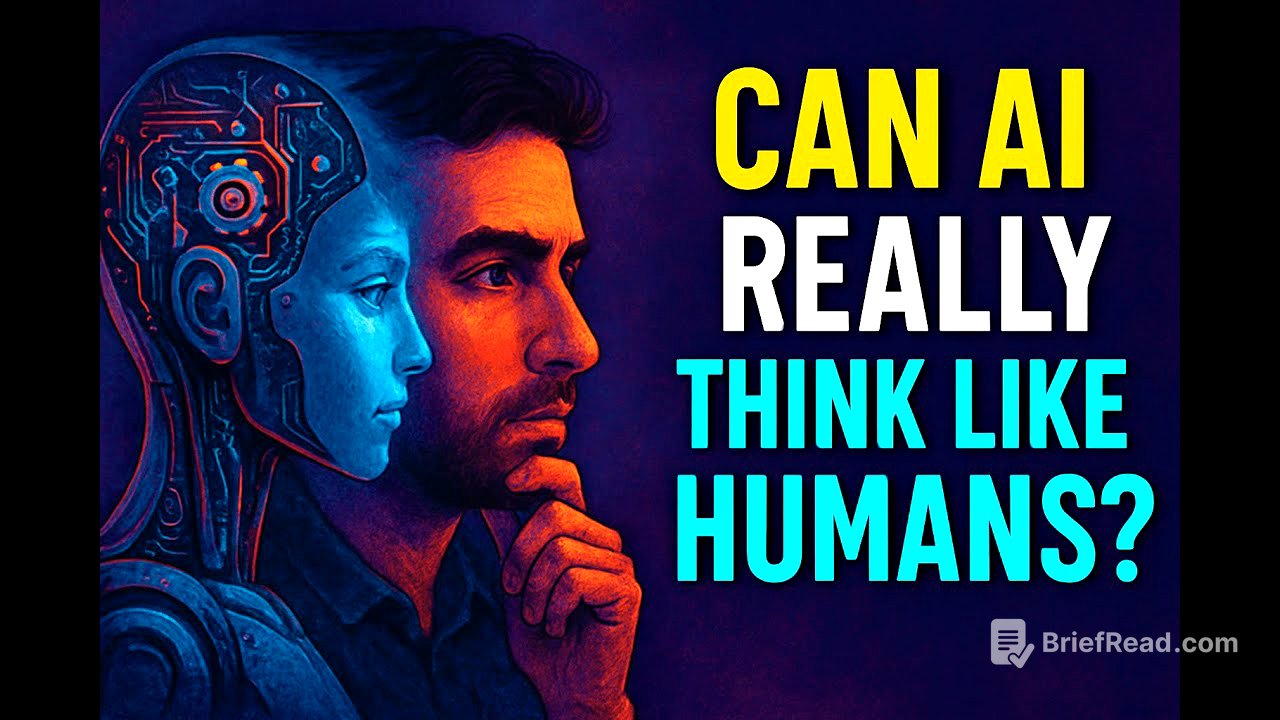TLDR;
This video addresses the question of whether AI can truly think like humans, clarifying the current capabilities of AI versus artificial general intelligence (AGI). It explains how AI systems trick us into believing they can think, detailing the impact of AI tools on the job market. The key takeaways are:
- AI, in its current state, cannot think independently but relies on vast amounts of trained data to provide solutions.
- AGI, which aims to replicate human-level cognitive thinking, is still under development and not yet achieved.
- AI tools are impacting the job market by increasing efficiency and potentially reducing the number of resources needed for projects, leading to job cuts for those who do not adapt to using these tools effectively.
Intro [0:00]
The session aims to address the common question of whether AI can think like humans and to clarify the impact of AI on the job market. It intends to dispel any misconceptions about AI's capabilities and its potential effects on employment.
AI vs AGI [1:20]
The video clarifies that AI cannot think by itself, distinguishing it from Artificial General Intelligence (AGI), which is a more advanced form of AI that aims to replicate human-level cognitive thinking. Currently, AGI has not been achieved, and AI systems trick us into believing they can think.
How AI Systems Trick Us [3:53]
AI systems, such as Alexa and self-driving cars, are trained with enormous amounts of data using machine learning algorithms. This training allows them to provide solutions and answers, creating the illusion of thinking. However, these machines do not possess their own thinking capabilities but rather rely on the experience gained from the data they have been trained on.
Real World Example [8:49]
The concept of AI gaining experience from data is illustrated with the example of choosing between two doctors: one with experience treating 25 cases and another with one lakh cases. Similarly, AI systems gain experience faster than humans due to high configurations, data availability, and advanced algorithms, enabling them to behave as if they know everything, even though they lack genuine thinking capabilities.
Impact of AI on the Job Market [12:31]
AI tools are impacting the job market by reducing the time required to complete tasks, which can lead to a reduction in the number of resources needed for projects. This can result in job cuts, with companies retaining employees who can effectively use AI tools to enhance productivity. While AI will not completely remove jobs, it will require individuals to adapt and acquire AI skills to remain competitive in the workforce.









